NIL
Commit! Texas Tech lands 2026 five-star OT Felix Ojo
Texas Tech landed the No. 1 rated offensive tackle in the country in Felix Ojo, who announced his commitment Friday, on July Fourth, which also happens to be his birthday. The 6-foot-6, 275-pound offensive lineman out of Mansfield (TX) Lake Ridge chose the Red Raiders over reported offers from Alabama, Arizona State, Arkansas, Auburn, Baylor, […]

Texas Tech landed the No. 1 rated offensive tackle in the country in Felix Ojo, who announced his commitment Friday, on July Fourth, which also happens to be his birthday. The 6-foot-6, 275-pound offensive lineman out of Mansfield (TX) Lake Ridge chose the Red Raiders over reported offers from Alabama, Arizona State, Arkansas, Auburn, Baylor, Boston College, California, Colorado, Duke, Florida, Florida State, Georgia, Georgia Tech, Houston, Kansas, Kansas State, LSU, Memphis, Michigan, Mississippi State, Missouri, Nebraska, Notre Dame, Ohio State, Oklahoma, Ole Miss, Oregon, Penn State, Pittsburgh, Purdue, SMU, Stanford, TCU, Tennessee, Texas, Texas A&M, Texas State, UCLA, USC, Utah, Vanderbilt and Washington.
The five-star recruit is rated as the No. 5 overall player in the nation, No. 1 offensive tackle in the country, the No. 2 overall prospect in Texas for the 2026 class according to 247Sports. The 247Sports Composite, an average of the major recruiting rankings services, rates Ojo about the same as a five-star recruit, the No. 7 overall prospect in the country, the No. 2 offensive tackle in the nation and the No. 1 overall player in the Lone Star State.
Simply put, if Ojo’s commitment holds and he signs with the Red Raiders, he’ll supplant Micah Hudson as the highest rated recruit to sign with Texas Tech in the modern college football era, and most likely, in the program’s entire history.
Ojo recently released a top four without Texas Tech in it, but the Red Raiders made a late push and secured Ojo’s commitment. Texas Tech has been on fire this week, picking up commitments from Composite four-star safety Donovan Webb on Wednesday, Composite four-star running back Ashton Rowden on Thursday and now Ojo today.
The five-star recruit took an official visit to Raiderland back in April, which helped the cause. Inside the Red Raiders caught up with Ojo following the visit.
“The visit went great overall and my favorite part was seeing the facilities and touring campus,” Ojo said. “The training room and how top tier it is (was my favorite part), and I talked with Blanchard, both McGuire’s and they made it known I was a priority and felt confident they could take me and make me into a first-round pick.”
247Sports national recruiting analyst Gabe Brooks provided the following projection of Ojo’s potential at the next level and beyond:
“Tall offensive tackle prospect who’s very young for his recruiting class with a July DOB. Verified at 6-foot-6, 272 pounds post-junior season with adequate length numbers in arm (33 5/8) and wingspan (81 1/2). Owns a lean, athletic look and plays with impressive functional athleticism and movement ability. Live evaluation during 2025 Navy Army All-American Bowl revealed a consistent mean streak in pads. Stood out physically, athletically, and in field demeanor despite being among the youngest competitors in the event. Hand placement/technique have improved from sophomore to junior year, along with ability to stand up to POA strength. Gets good extension and uses length to his advantage. Still developing consistent pop; can be grabby, but looks to finish with authority. Plays upright at times and can show more frequent bend ability. Will continue to bulk given immense frame potential. Bolsters athletic profile with discus reps. Capacities for strength and power are high given excellent physical tools and relative youth. Looks like one of the top OT prospects in the 2026 class with potential to become a multi-year high-major tackle with ample pro potential.”
Ojo is the 18th pledge of Texas Tech’s 2026 class joining quarterback Stephen Cannon, running back Ashton Rowden, receiver Imari Jehiel, offensive linemen Jacob Crow and Jerald Mays, three-star edges Tieson Ejiawoko and Demarcus Marks, three-star defensive linemen Ayden Johnson and Krush Johnson, three-star linebackers Cord Nolan and Kaegan Ash, plus three-star defensive backs Donovan Webb, S’Vioarean Martin, Aaron Bradshaw, Noah Lewis, Luke Bell and Maddox Quiller. Texas Tech’s class ranks 23rd nationally, and tops in the Big 12. With the commitments of Webb, Rowden and Ojo this week Texas Tech has jumped 26 spots in 247Sports’ national recruiting rankings. The Red Raiders signed the No. 48 high school and No. 2 transfer groups for an overall national ranking of No. 22 in 2025.
NIL
Nico Iamaleava: UCLA transfer driven by family, not NIL deal
LAS VEGAS — In his first public comments since his tumultuous transfer from Tennessee to UCLA in April, Bruins quarterback Nico Iamaleava said Thursday the decision to leave the Volunteers was “one of the hardest decisions I ever had to make.” “My driving factor to come back home was my family, and I hope every […]
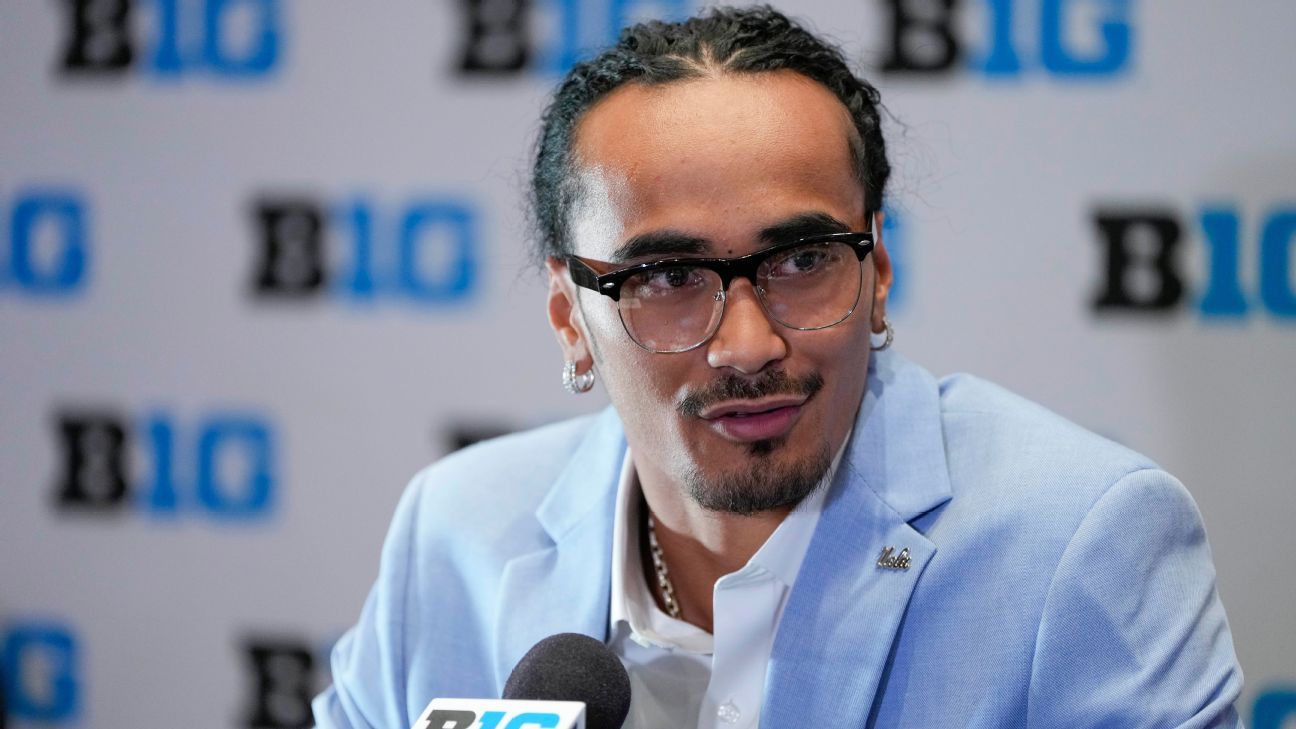
LAS VEGAS — In his first public comments since his tumultuous transfer from Tennessee to UCLA in April, Bruins quarterback Nico Iamaleava said Thursday the decision to leave the Volunteers was “one of the hardest decisions I ever had to make.”
“My driving factor to come back home was my family, and I hope every Tennessee fan understands that,” Iamaleava said at Big Ten media days. “It was just a lot of drama, but man, I’m excited to be at UCLA.”
Iamaleava made multiple references to “false reports” about him while at Tennessee that centered on him and his representation wanting higher NIL compensation. The Long Beach, California, native remained steadfast that the main motivation for his move was not money, but proximity to family. He said the reports made him feel “not comfortable in the position I was in.”
“I think just the outside world in general thinks that it was something that it wasn’t,” Iamaleava told ESPN. “Going back home was always in the back of my head. Just being back closer to my family; [it] took a toll on getting my family to Tennessee. It was just a lot of traveling.”
ESPN reported in April that Iamaleava’s representation had been pushing for his NIL contract — which had previously paid him $2.4 million per year and was set to pay him over $8 million over his time at Tennessee — to increase to $4 million for 2025. Sources told ESPN that Iamaleava’s camp also reached out to Miami, Ole Miss and Oregon, among others, about transferring after last season ended.
“I don’t speak on money matters,” Iamaleava said Thursday. “I’m just here for ball and school.”
Amid those NIL contract negotiations, Iamaleava did not show up to a Tennessee spring practice. Shortly after, coach Josh Heupel said the program was “moving on” from Iamaleava.
“I want to thank him for everything he’s done since he’s gotten here, as a recruit and who he was as a player and how he competed inside the building,” Heupel said at the time. “There’s no one that’s bigger than the Power T. That includes me.”
On Thursday, Iamaleava called the events of that week “crazy” and said the experience was “a lot” for him. After the split, Iamaleava quickly made his decision to transfer to UCLA. Quarterback Joey Aguilar, who had transferred to Westwood from Appalachian State in hopes of becoming the program’s starter, ended up transferring to Tennessee as a result.
“My mindset was going into compete with whoever was in there for the starting spot,” Iamaleava said of Aguilar. “I wish him nothing but the best. I know he’s going to get the best fans out there. Hopefully he gets to experience all the positive things that I experienced.”
Iamaleava redshirted in 2023 and threw for 2,616 yards and 19 touchdowns in his first season as a starter, leading Tennessee to 10 wins and a College Football Playoff appearance that ended in a first-round loss to eventual national champion Ohio State. Iamaleava is set to be the Bruins’ starter this season.
“The expectation is for me to be better,” Iamaleava said. “I got to get better.”
UCLA is coming off a 5-7 record in coach DeShaun Foster’s debut season. Foster said Thursday there was no hesitation about adding Iamaleava to the roster when the opportunity presented itself.
“We’re just excited to have a playoff quarterback,” Foster said. “Just being able to come back home and be comfortable and being in a familiar environment, I think the sky is the limit.”
NIL
Trump signs executive order laying out new rules for NIL deals and money in college sports
President Trump on Thursday introduced new rules for the name, image and likeness and revenue-sharing deals that have shaken up college sports in recent years, seeking to rein in what the White House called an “out-of-control, rudderless system.” The executive order seeks to ban “third-party, pay-for-play payments to collegiate athletes,” while still allowing athletes to […]
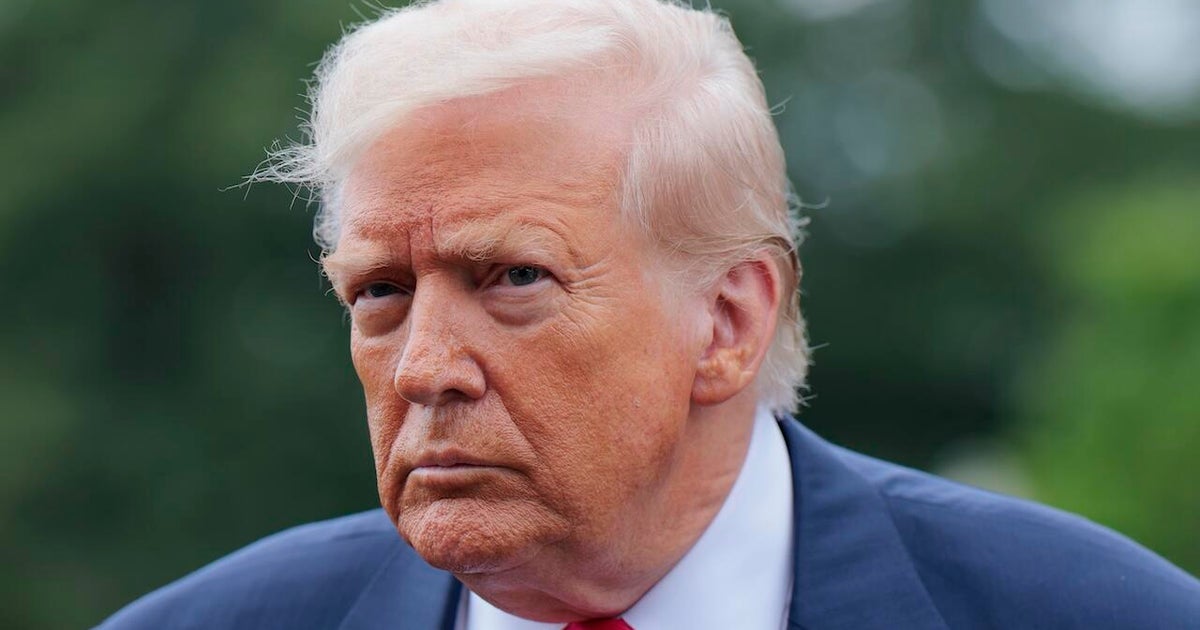
President Trump on Thursday introduced new rules for the name, image and likeness and revenue-sharing deals that have shaken up college sports in recent years, seeking to rein in what the White House called an “out-of-control, rudderless system.”
The executive order seeks to ban “third-party, pay-for-play payments to collegiate athletes,” while still allowing athletes to strike brand endorsement deals. It also says any revenue-sharing arrangements between universities and athletes should expand or preserve “scholarships and collegiate athletic opportunities in women’s and non-revenue sports.”
Mr. Trump’s order also said schools with more than $50 million in athletic revenue cannot reduce the number of scholarship opportunities for “non-revenue sports” — typically sports other than football and basketball. Schools that draw more than $125 million are directed to increase their non-revenue scholarships in the coming academic year.
The president also directed the National Labor Relations Board to work on “clarifying the status of collegiate athletes” — likely referring to moves by some college athletes to be deemed university employees and form labor unions.
It’s not clear how the order will be enforced. Mr. Trump tells top administration officials to “develop a plan” within 30 days to advance the order using “all available and appropriate regulatory, enforcement, and litigation mechanisms.” It floated decisions about federal funding, Title IX enforcement and work with Congress.
CBS News was first to report on Mr. Trump’s plan to sign a college sports-focused executive order last week.
In recent years, collegiate sports have been reshaped by drastic policy changes that allow student-athletes to make millions of dollars while still in school.
The NCAA in 2021 permitted athletes to earn money for the use of their name, image and likeness, or NIL. Since then, some big-name student-athletes have scored the types of lucrative brand endorsement deals that were once more closely associated with professional athletes.
Rules restricting schools from directly paying athletes have also been loosened. A legal settlement involving the NCAA earlier this year allowed schools to start sharing revenue with athletes for the first time, and the Supreme Court ruled in 2021 that the NCAA’s attempts to limit some benefits to athletes violated antitrust law.
The changes mark a stark departure from college sports’ previous operating model, in which athletes were thought of as amateurs and were paid in college scholarships. That system faced stiff criticism from many student-athletes, who viewed it as unfair to block them from being compensated even as their work, in some cases, brought in millions of dollars for their schools.
But the new landscape has also drawn fears about whether smaller colleges will struggle to compete with their larger peers’ checkbooks, and whether sports that don’t generate much revenue for colleges will face more pressure. And fans of certain schools have formed so-called NIL collectives that draw in donations and offer endorsement deals to players, an arrangement some critics have called a “pay-to-play scheme.”
“Absent guardrails to stop the madness and ensure a reasonable, balanced use of resources across collegiate athletic programs that preserves their educational and developmental benefits, many college sports will soon cease to exist,” Mr. Trump’s executive order signed Thursday states.
Meanwhile, most states have passed their own laws regulating NIL, but the federal government doesn’t have a uniform standard. This week, a House committee advanced the SCORE Act, which would set national NIL rules. But there’s concern that the bill doesn’t do enough to protect athletes’ interests.
The NCAA said in a statement after Thursday’s executive order that it “appreciates the Trump Administration’s focus on the life-changing opportunities college sports provides millions of young people.”
“The NCAA is making positive changes for student-athletes and confronting many challenges facing college sports by mandating health and wellness benefits and guaranteeing scholarships, but there are some threats to college sports that federal legislation can effectively address and the Association is advocating with student-athletes and their schools for a bipartisan solution with Congress and the Administration,” NCAA President Charlie Baker said in a statement.
NIL
Donald Trump college sports executive order: Can president limit NIL?
NIL Explained: How College Sports Changed Forever Super Agent Leigh Steinberg breaks down how NIL has changed college sports forever, in an interview with “The Sports Professor” Rick Horrow. SEICon President Trump issued an executive order aiming to regulate name, image, and likeness (NIL) deals in college sports. The order seeks to prohibit third-party, pay-for-play […]
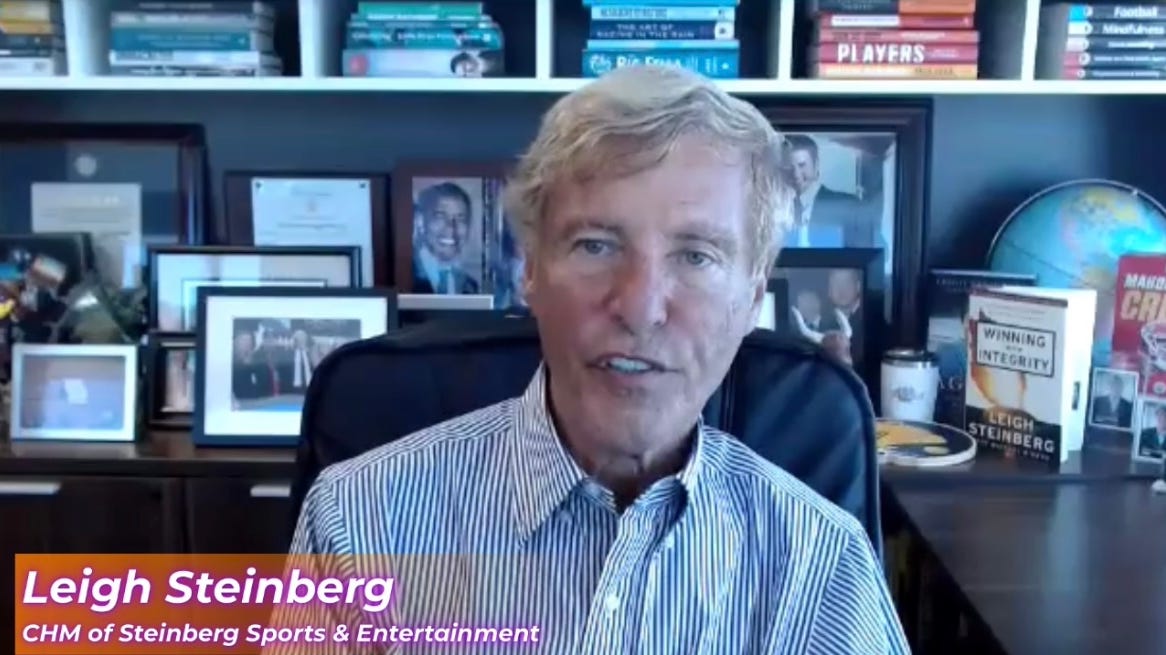
NIL Explained: How College Sports Changed Forever
Super Agent Leigh Steinberg breaks down how NIL has changed college sports forever, in an interview with “The Sports Professor” Rick Horrow.
SEICon
- President Trump issued an executive order aiming to regulate name, image, and likeness (NIL) deals in college sports.
- The order seeks to prohibit third-party, pay-for-play payments while allowing fair-market-value compensation like endorsements.
- It also addresses scholarship opportunities for women’s and non-revenue sports and calls for clarification on the employment status of student-athletes.
President Donald Trump announced an executive order aiming to limit the name, image and likeness deals that have gone rampant in college sports in recent years. The real-world impact of the NIL order is unclear.
On Thursday, July 24, the White House posted the order — which claims the president is “saving college sports” in its title — that among other things “prohibits third-party, pay-for-play payments to collegiate athletes.” The order goes on to say that “legitimate, fair-market-value compensation” such as brand endorsements would still be permitted.
College sports has been in a state of flux since the House and Alston cases that went to the Supreme Court opened the floodgates for athletes to make money via commercials and endorsements. It did not, however, begin the era of star athletes being paid millions of dollars to play for a school: The legend of “bag men” delivering big money from boosters to prospects goes back decades. The order seems to target collectives that college programs use to organize NIL deals for their players, though, like many things in the order, the specifics are unclear.
How does Trump’s executive order change the college sports landscape? Here’s a look at what it says and, perhaps more importantly, what it doesn’t say:
Trump executive order on college sports
The order announced July 24 calls for the “preservation and, where possible, expansion of opportunities” for women’s and non-revenue sports. Most NIL money goes to football and basketball players, though some athletes in other sports have raked in million-dollar NIL deals. In February, Trump signed an executive order banning trans women from competing in women’s collegiate athletics despite NCAA President Charlie Baker testifying there are “less than 10” such athletes among 500,000 in the country.
Here’s what the order broke down for non-revenue sports:
- Athletic departments with more than $125 million in revenue should provide more scholarship opportunities for non-revenue sports than last year and should provide the maximum number of roster spots permitted under NCAA rules.
- Those with $50 million in revenue should provide at least as many scholarships for non-revenue sports as last year with the maximum number of roster spots permissible.
- Colleges with $50 million or less in athletic revenue should not disproportionately reduce scholarships or roster spots based on how much revenue the sport generates.
The order calls on the Secretary of Labor and the National Labor Relations Board “to clarify the status of student-athletes.” In a unanimous 2021 decision in House v. NCAA, the Supreme Court set the table for college athletes to be considered employees of their schools and thereby eligible for the according benefits and pay. The settlement in the case took effect July 1, opening the period for colleges to directly pay athletes for the first time through a revenue-sharing model.
The order also calls on the Attorney General and Federal Trade Commission to “protect student-athletes’ rights and safeguard the long-term stability of college athletics from endless, debilitating antitrust and other legal challenges.” It also asks the U.S. Olympic and Paralympic committees to meet with White House officials to “protect the role of college athletics in developing world-class American athletes.” It’s unclear what those measures would entail.
What does Trump NIL executive order mean for college sports?
That answer is unknown, especially in light of some of Trump’s prior calls to action on the subject falling by the wayside. Trump seemed ready to form a college sports commission co-chaired by legendary former Alabama football coach Nick Saban, but there has been no word of progress since.
There is little illuminating language in the order and little indication what can actively be done to stem the tide of college athletes seeking financial compensation for their work. It’s widely agreed that college athletes should be paid, especially considering TV contracts to air their games are now worth $10 billion and coaches such as Saban can more than $11 million a year. Meanwhile, a bill in the U.S. House of Representatives on the subject of college athletics is expected to move toward a vote once Congress returns from summer recess in September. NCAA President Charlie Baker and leaders of three House committees said their focus would be on the bill.
Trump had a busy day. He visited the Federal Reserve and had a public argument with Fed Chair Jerome Powell as he seeks to fire him (something he does not have the authority to do), later signing executive orders to cancel $9 billion in foreign aid and public broadcasting funding. Meanwhile, his administration is dealing with the ongoing battle over records in the Jeffrey Epstein case as the Department of Justice was issued a subpoena over the list of names attached to the convicted child sex trafficker. A DOJ official met July 24 with Ghislaine Maxwell, Epstein’s co-conspirator, at federal prison in Tallahassee.
Contributing: Paul Myerberg, USA TODAY
NIL
Texas Tech pitcher NiJaree Canady joins Travis Hunter as Big 12 Athlete of the Year
Texas Tech women’s softball has been nationally recognized for its aggressive approach to the transfer portal, landing numerous All-American-level players from other schools as it continues to build a dominant squad. Returning elite pitcher NiJaree Canady is another key piece to their next run at the Softball World Series. Canady’s dominance on the mound was […]

Texas Tech women’s softball has been nationally recognized for its aggressive approach to the transfer portal, landing numerous All-American-level players from other schools as it continues to build a dominant squad. Returning elite pitcher NiJaree Canady is another key piece to their next run at the Softball World Series. Canady’s dominance on the mound was only overshadowed by her impressive name, image, and likeness (NIL) deals. She made the news for landing multiple six- and seven-figure deals as she led her Lady Red Raiders to a second-place finish in this year’s World Series.
Canady is once again in the news, this time for her athletic prowess. She was named the Big 12 Female Athlete of the Year. On the male side the award went to Heisman Award winner Travis Hunter, formerly of the Colorado Buffaloes and currently playing for the NFL’s Jacksonville Jaguars. Canady was almost unhittable this year as her tech team stormed their way through the College Softball Playoffs before ultimately succumbing to their rivals, the Texas Longhorns.
Ladies and gentlemen… give it up for the 2024-25 Big 12 Athletes of the Year 👏
⭐️ NiJaree Canady | @TexasTechSB
⭐️ Travis Hunter | @CUBuffsFootball pic.twitter.com/DPdmlZhxIq— Big 12 Conference (@Big12Conference) July 24, 2025
Along with her newest award here are some other accolades Canady racked up this
– Big 12 Pitcher of the Year
– Consensu 1st Team All-American
– Honda Sport Award winner for softball
– CSC Academic All-American Team Member of the Year
– WCWS All-Tournament Team
MORE: As Texas Tech faces NIL scrutiny, WR Reggie Virgil uses it to give back
– Big 12 Pitcher of the Year
– Consensus 1st Team All-American
– Honda Sport Award winner for softball
– CSC Academic All-American Team Member of the Year
– WCWS All-Tournament Team
– and many more… pic.twitter.com/SjFxOQIZ1a— Texas Tech Softball (@TexasTechSB) July 24, 2025
– Enjoy more Texas Tech coverage on Texas Tech On SI –
NIL
Trump signs executive order to overhaul NIL in college sports
(LEX 18) — President Trump signed an executive order that prohibits third-party “pay-for-play” payments to collegiate athletes while still allowing legitimate fair market value compensation such as brand endorsements. The executive order aims to clarify the rules around Name, Image, and Likeness (NIL) deals in college athletics, distinguishing between acceptable brand endorsements and problematic recruitment […]
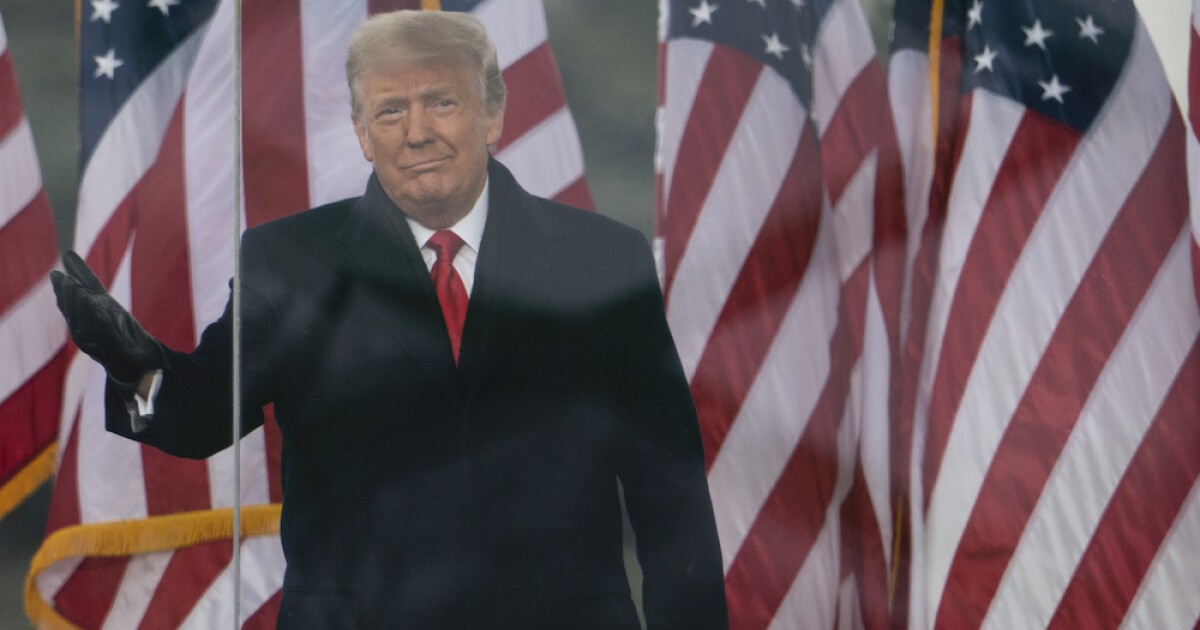
(LEX 18) — President Trump signed an executive order that prohibits third-party “pay-for-play” payments to collegiate athletes while still allowing legitimate fair market value compensation such as brand endorsements.
The executive order aims to clarify the rules around Name, Image, and Likeness (NIL) deals in college athletics, distinguishing between acceptable brand endorsements and problematic recruitment payments.
“Prohibits third party… pay-for-play payments… to collegiate athletes,” the order states, while noting this “does not apply to legitimate fair market value compensation… such as brand endorsements.”
The market value and brand endorsements represent the original intent of the NIL era, giving athletes the opportunity to profit from their name, image, and likeness.
What the order specifically prohibits are the collectives that have emerged nationwide, particularly in football and men’s basketball, creating a multi-million-dollar market in recruiting and the transfer portal.
This executive order aligns with guidance issued earlier this month by the College Sports Commission.
The order also specifies that revenue sharing between universities and their athletes should protect women’s and non-revenue sports.
Additionally, it directs the Secretary of Labor and the National Labor Relations Board to “clarify the status of student-athletes.”
NIL
UCLA quarterback’s first interview since Tennessee football
Nico Iamaleava wore a suit in UCLA blue on the Big Ten Network as his Tennessee football highlights played on the monitor. However, the Vols were never mentioned during the former UT quarterback’s 10-minute TV appearance from Big Ten football media days in Los Angeles. That wasn’t surprising. The Big Ten Network wants to promote […]
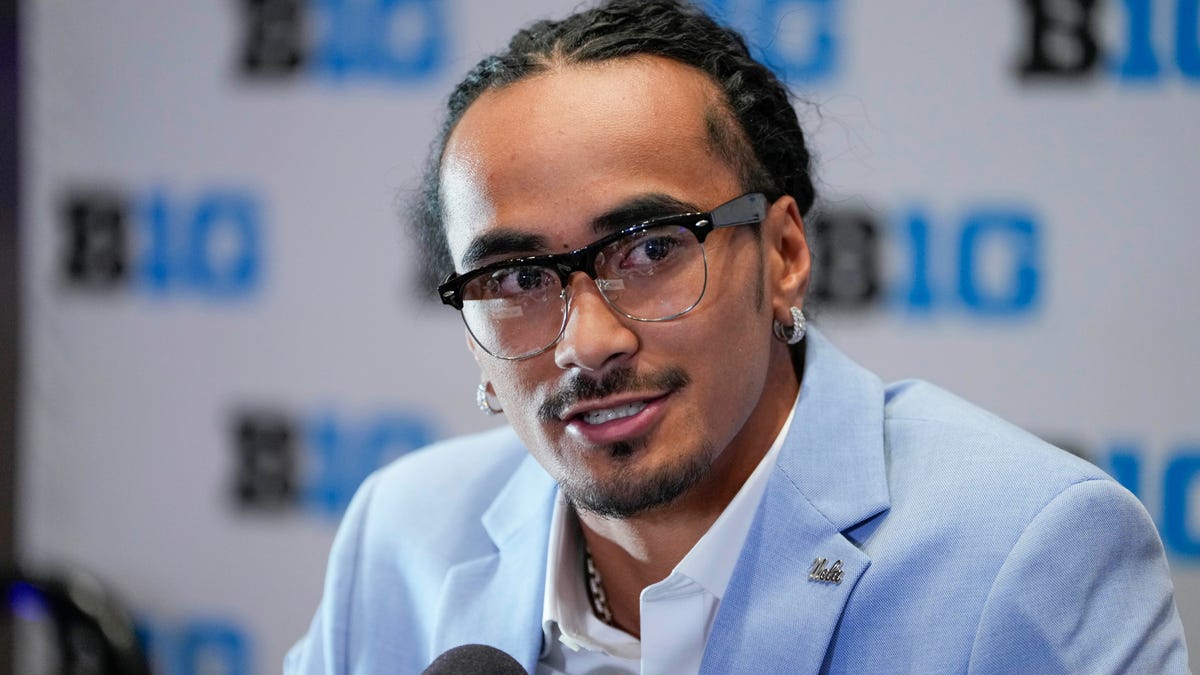
Nico Iamaleava wore a suit in UCLA blue on the Big Ten Network as his Tennessee football highlights played on the monitor.
However, the Vols were never mentioned during the former UT quarterback’s 10-minute TV appearance from Big Ten football media days in Los Angeles.
That wasn’t surprising. The Big Ten Network wants to promote Iamaleava’s new home at UCLA rather than his old one at Tennessee in the SEC.
Iamaleava followed the same script. He didn’t mention Tennessee. But he talked about why he likes UCLA, located near his home in Long Beach, California.
“(I like) the whole coaching staff and just the players that I already knew on the team,” Iamaleava said. “When I took my first visit, I felt very welcomed by the team. It made me feel good. I’m very thankful for the opportunity.
“I’m closer to my family. All my family can come to the games now.”
It was Iamaleava’s first media appearance since his shocking exit from Tennessee in April over an NIL dispute.
Iamaleava sought to renegotiate his NIL deal, which reportedly paid him more than $2 million per year. ESPN’s Chris Low, citing sources, reported that Iamaleava’s representatives wanted his NIL pay increased to $4 million per year, using the possibility of him entering the transfer portal as leverage.
Iamaleava skipped Tennessee’s final practice of spring and the Orange & White spring game. He entered the portal and transferred to UCLA. His NIL pay at UCLA hasn’t been reported.
Iamaleava’s move led to quarterback Joey Aguilar transferring from UCLA to Tennessee, where he’ll compete for the starting job with Jake Merklinger and George MacIntyre.
What UCLA coach liked about Nico Iamaleava’s playoff game
UCLA coach DeShaun Foster was impressed by Iamaleava’s grit in Tennessee’s 42-17 loss to Ohio State in the 2024 College Football Playoff.
Iamaleava passed for a season-low 104 yards in that game. But he also rushed for two touchdowns and stood in the pocket while taking several vicious hits.
“We’re just excited to have a playoff quarterback, somebody who was able to lead his team to the playoffs,” Foster said. “(The Vols) might not have gotten the outcome that they wanted, but he still was able to play. And he showed how tough he was in that game.
“To be able to come home and be comfortable in a familiar environment, I think the sky is the limit.”
Iamaleava helped Tennessee post a 10-3 record, capped by its first appearance in the College Football Playoff. Meanwhile, UCLA went 5-7 last season.
“The main thing for me is to bring a championship culture back to Westwood,” Iamaleava said. “I hate losing, so I’m a big-time winner.”
Nico Iamaleava won’t wear Troy Aikman’s number
In April, UCLA announced Iamaleava’s transfer with a graphic featuring him in a No. 8 Bruins jersey, the same number he wore at Tennessee.
It briefly sparked controversy because UCLA’s No. 8 is retired. It was worn by former UCLA star quarterback Troy Aikman, a Pro Football Hall of Fame member.
But Iamaleava actually will wear No. 9, which was revealed on UCLA’s updated roster for the 2025 season.
Adam Sparks is the Tennessee football beat reporter. Email adam.sparks@knoxnews.com. X, formerly known as Twitter@AdamSparks. Support strong local journalism by subscribing at knoxnews.com/subscribe.
Get the latest news and insight on SEC football by subscribing to the SEC Unfiltered newsletter, delivered straight to your inbox.
-

 College Sports2 weeks ago
College Sports2 weeks agoWhy a rising mid-major power with an NCAA Tournament team opted out of revenue-sharing — and advertised it
-

 Sports2 weeks ago
Sports2 weeks agoNew 'Bosch' spin
-

 Fashion2 weeks ago
Fashion2 weeks agoEA Sports College Football 26 review – They got us in the first half, not gonna lie
-
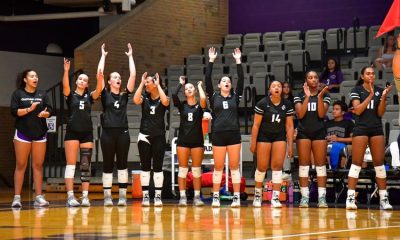
 Sports1 week ago
Sports1 week agoVolleyball Releases 2025 Schedule – Niagara University Athletics
-

 College Sports3 weeks ago
College Sports3 weeks agoMSU Hockey News – The Only Colors
-

 Sports3 weeks ago
Sports3 weeks agoE.l.f Cosmetics Builds Sports Marketing Game Plan Toward Bigger Goals
-

 Health2 weeks ago
Health2 weeks agoCAREGD Trademark Hits the Streets for Mental Health Month
-

 College Sports2 weeks ago
College Sports2 weeks agoBuford DB Tyriq Green Commits to Georgia
-
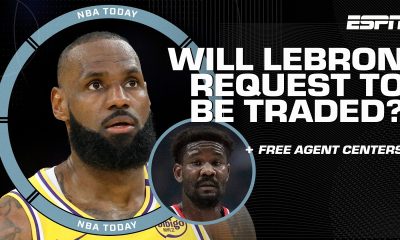
 Youtube2 weeks ago
Youtube2 weeks agoWill LeBron James request a trade? 🤔 Windy says MULTIPLE TEAMS would make offers 👀 | NBA Today
-

 Youtube2 weeks ago
Youtube2 weeks agoWill Giannis DEPART Milwaukee⁉️ + How signing Turner & waiving Dame impacts the Bucks | NBA Today



























